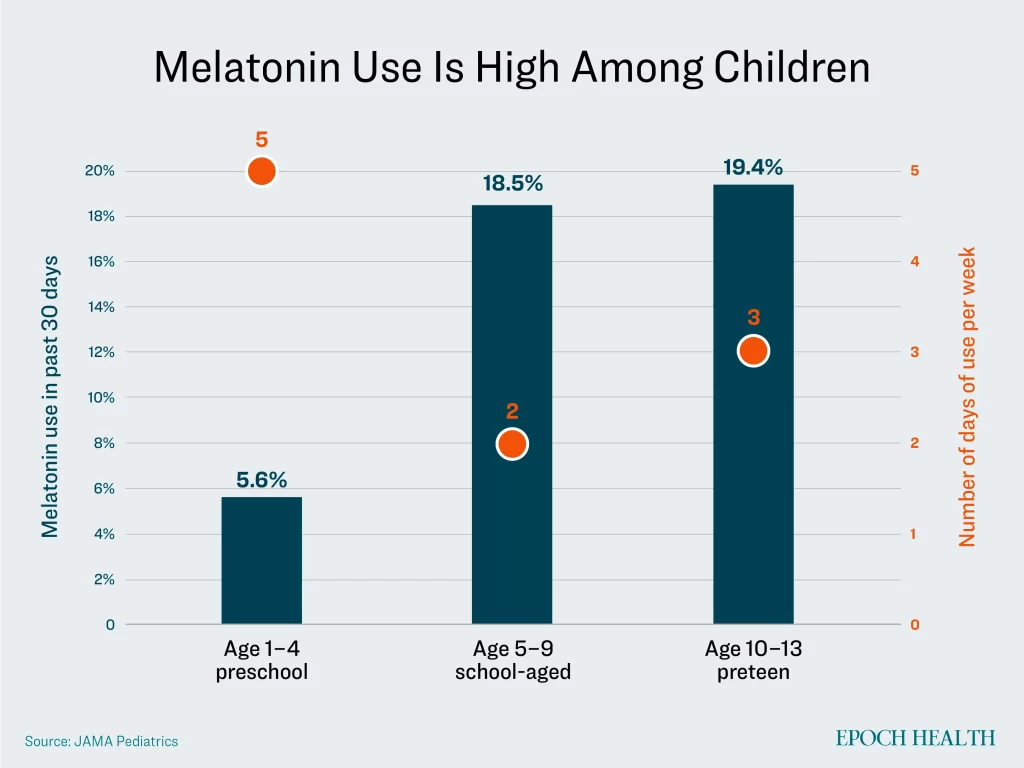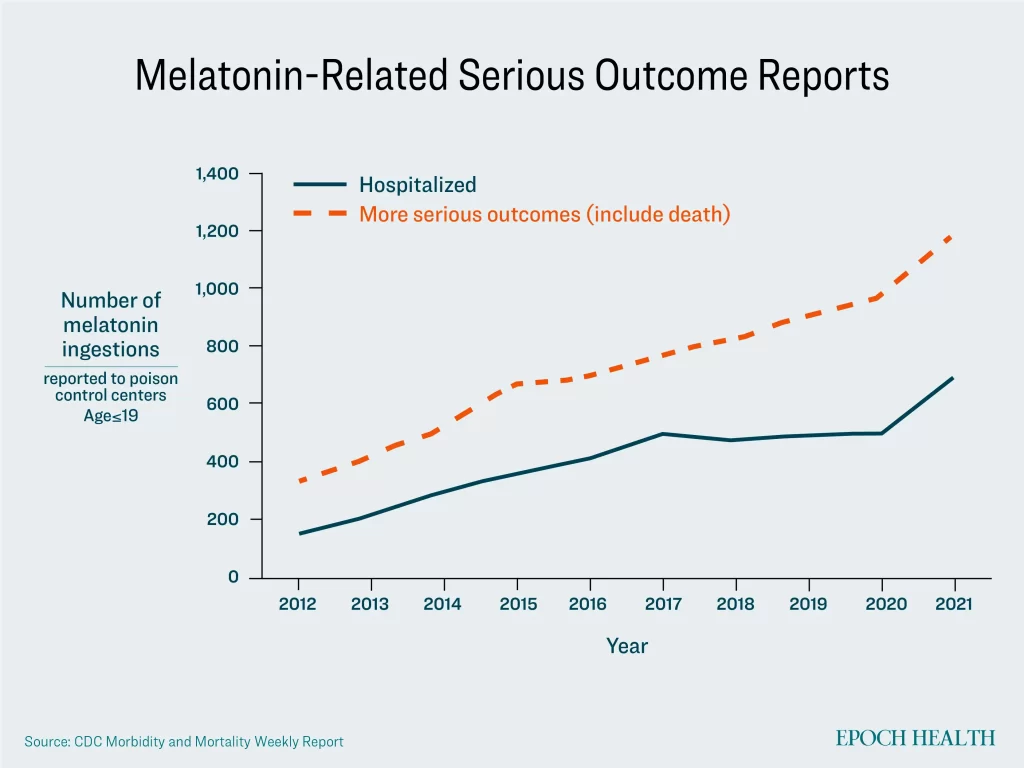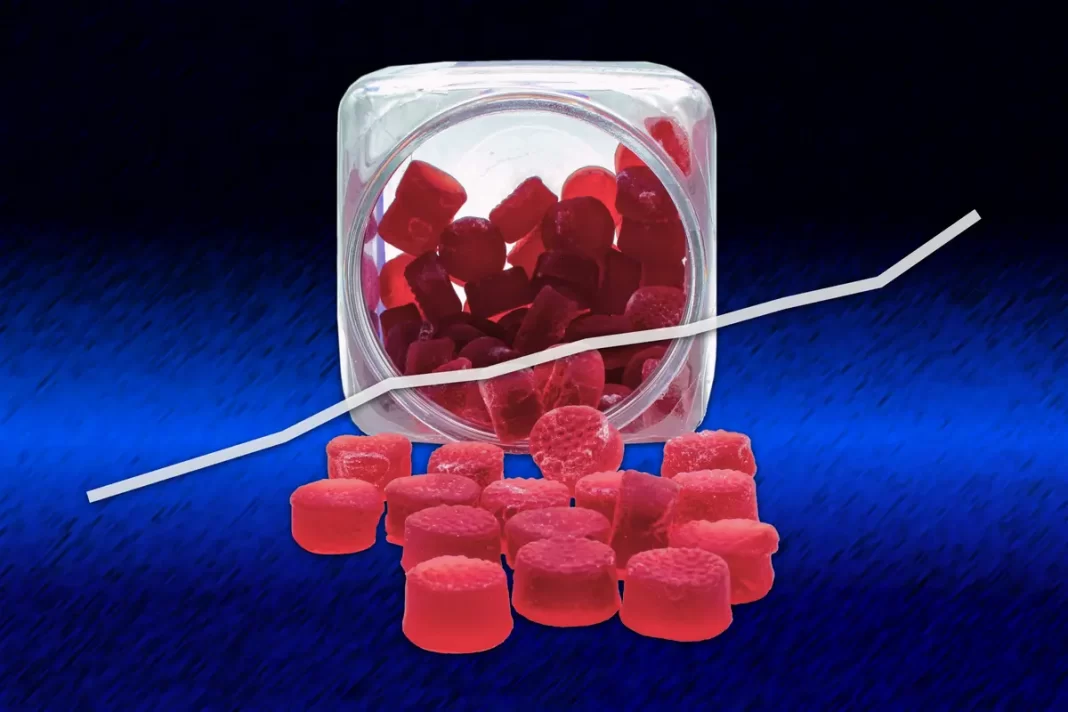Experts believe the cause of the increase in poisoning reports may extend beyond issues of melatonin safety.
Insomnia and melatonin supplementation are not words one would often associate with children.
But recent survey findings published in the Journal of the American Medical Association (JAMA) Pediatrics suggest that melatonin consumption in U.S. children and adolescents is “exceedingly common.”
Around one-fifth of American children use melatonin for sleep, with some parents beginning administration to their children at the early age of 1, the authors wrote.
The United States has seen a rapid rise in pediatric melatonin use due to sleep problems. Some clinicians attribute these sleep problems to an increase in mental illness and screen use.
According to the National Institutes of Health’s (NIH) survey findings, between 2017 and 2018, around 1 percent of children and adolescents under the age of 19 consumed melatonin in the past 30 days.
The JAMA Pediatrics study authors compared this finding to their own research results, reporting that the current data indicate a rise in use of about 20 percent. Parents surveyed also reported that their children take the supplement on average two to five days per week, and many take it daily.

The common use of melatonin has also contributed to melatonin poisoning. Between 2012 and 2021, poison control centers in the United States have seen a 530 percent increase in melatonin ingestion reports among children, some of which resulted in hospitalization and death, according to research published in the U.S. Centers for Disease Control and Prevention’s (CDC) Morbidity and Mortality Weekly Report (MMWR) publication.

Insufficient Sleep Is Common Among Children
“A lot of people think that kids don’t have sleeping problems, and that is absolutely not true,” sleep medicine pediatrician Dr. Gayln Perry, CEO of the Perry Center for Pediatric & Adult Sleep Care, told The Epoch Times.
Kids have always had sleeping problems, and these don’t differ much from those of adults.
COVID has also escalated problems. Around 25 percent of children suffered from disrupted sleep prior to the pandemic, and this jumped to nearly 46 percent in 2020.
By Marina Zhang














































